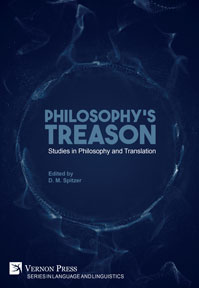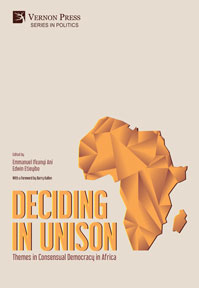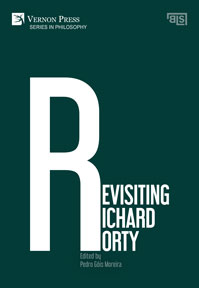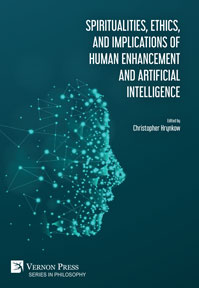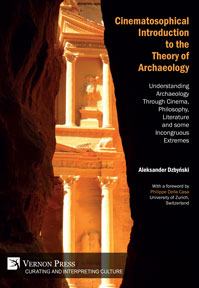Search
Browse
by Publication status
by Subject
Anthropology (26) Art (122) Business and Finance (25) Cognitive Science and Psychology (53) Communication and Journalism (43) Economics (61) Education (65) History (145) Human Geography (22) Interdisciplinary (40) Language and Linguistics (128) Law (16) Music Studies (18) Philosophy (153) Political Science and International Relations (99) Sociology (295) Statistics and Quantitative Methods (19)by Series
Series in Literary Studies (62) Series in Philosophy (58) Series in Education (49) Series in Sociology (42) Series in World History (31) Series in Politics (30) Bridging Languages and Scholarship (27) Series in Language and Linguistics (25) Cognitive Science and Psychology (20) Series in Philosophy of Religion (20) Series in American History (19) Series in Art (19) Critical Perspectives on Social Science (16) Series in Cinema and Culture (16) Curating and Interpreting Culture (15) Series on the History of Art (14) Series in Anthropology (13) Series in Critical Media Studies (13) Economics (13) Series in Business and Finance (12) Series in Music (12) Series in Communication (9) Series in Performing Arts (9) Philosophy of Personalism (8) Series in Law (8) Series in Economic Methodology (7) Series on Climate Change and Society (7) Classics in Economics (6) Series in Economic Development (6) Women's Studies (6) Philosophy of Forgiveness (5) Series in Built Environment (5) Series in Economic History (5) Series in Philosophy of Science (4) Series in Social Equality and Justice (4) Series on the History of Science (4) Serie en Sociología (3) Series in Contemporary History (3) Series in Creative Writing Studies (3) Series in Design (3) The Interdisciplinary Built Environment (3) Serie En Estudios Literarios (2) Series in Heritage Studies (2) Series in Innovation Studies (2) Serie en Ciencias Políticas (1) Serie en Comunicación y Medios (1) Serie en Entorno Construido (1) Serie en Estudios Culturales (1) Serie en Filosofía (1) Serie en Filosofía de la Ciencia (1) Serie en Música (1) Series in Classical Studies (1) Series in Economics of Technological Change (1) Series in Philosophy of Race (1) Series in Urban Studies (1)by Language
English Spanishby Author
Browsing with filters

Philosophy’s Treason
Studies in Philosophy and Translation
Edited by
David Morgan Spitzer, Harrisburg Area Community College
Availability: In stock
216pp. ¦ $60 £45 €51
Philosophy’s Treason: Studies in Philosophy and Translation gathers contributions from an international group of scholars at different stages of their careers, bringing together diverse perspectives on translation and philosophy. The volume’s six chapters primarily look towards translation from philosophic perspectives, often taking up issues central to Translation Studies and pursuing them along philosophic lines. By way of historical, logical, and personal reflection, several chapters address broad topics of translation, such as the entanglements of culture, ideology, politics, and history in the translation of philosophic works, the position of Translation Studies within current academic humanities, untranslatability within philosophic texts, and the ways philosophic reflection can enrich thinking on translation. Two more narrowly focused chapters work closely on specific philosophers and their texts to identify important implications for translation in philosophy. In a final “critical postscript” the volume takes a reflexive turn as its own chapters provide starting points for thinking about philosophy and translation in terms of periperformativity. From philosophers critically engaged with translation this volume offers distinct perspectives on a growing field of research on the interdisciplinarity and relationality of Translation Studies and Philosophy. Ranging from historical reflections on the overlap of translation and philosophy to philosophic investigation of questions central to translation to close-readings of translation within important philosophic texts, Philosophy’s Treason serves as a useful guide and model to educators in Translation Studies wishing to illustrate a variety of approaches to topics related to philosophy and translation.
Deciding in Unison: Themes in Consensual Democracy in Africa
Edited by
Emmanuel Ifeanyi Ani, University of Ghana, Ghana
and Edwin Etieyibo, University of the Witwatersrand
Availability: In stock
208pp. ¦ $51 £38 €43
Deciding in Unison: Themes in Consensual Democracy in Africa is an edited volume that both scholars and students of African philosophy and politics will find interesting. The chapters trace the current state of the debate as well as the idea that the advancement of consensus democracy as unanimity democracy is no longer valid, and a democracy of compromise is suggested as an alternative for advancing consensus democracy. The collection also contains chapters dealing with Wiredu’s consensual proposal for the building of resistance movements as well as his views about the relativity of truth and the way we should handle it. However, there are also chapters that explore the non-party system Wiredu proposes as not applicable in practice. Furthermore, the issues related to transferring consensus-supporting values like communism into the contemporary Africa setting are also examined. Also discussed in the book is how current presentations of African epistemology cannot pass for epistemology, and how we could begin to think of fashioning an African epistemology from deliberation aimed at consensus.
Revisiting Richard Rorty
Edited by
Pedro Góis Moreira, Catholic University of Portugal, Portugal
Availability: In stock
275pp. ¦ $63 £47 €53
Richard Rorty is considered one of the most original philosophers of the last decades, and he has generated warm enthusiasm on the part of many intellectuals and students, within and outside the field of philosophy. The collection opens with an essay by Robert Brandom, in which he continues the discussion of Rorty’s “vocabulary vocabulary” that he began in Rorty and his Critics, and ends with an interview in which Brandom talks about Rorty himself as a teacher and friend. The collection is then divided into three further sections, each addressing an aspect of Rorty’s thought. First, a political section contains several essays discussing Rorty’s notorious “prophecy” in Achieving our Country and the idea that he would have foreseen the rise of a political “strongman.” Also discussed are Rorty's view of the cultural left, his view of the relation between truth and democracy, and Rorty on the concept of fraternity. In a second, epistemological section, several essays address Rorty’s historicism, anti-representationalism, and his views on truth and on religion, often through the lenses of his critics (Putnam, Habermas, Dews). A final section addresses the relations between Rorty and other philosophers such as Hume, Heidegger, and Ortega y Gasset. This works contains valuable essays in three languages — English, Portuguese, and Spanish — and is a small example of the reach of Rorty’s thought and its expansion beyond the Anglo-Saxon world in only ten years after his death. It will appeal to Rorty’s scholars and researchers as well as any student of pragmatism and anti-foundationalist thought.
Spiritualities, ethics, and implications of human enhancement and artificial intelligence
Edited by
Christopher Hrynkow, University of Saskatchewan
Availability: In stock
302pp. ¦ $64 £48 €54
By taking a religiously and spiritually literature approach, this volume gets the heart of several emerging ethical issues crucial to both human identity and personhood beyond the human as technology advances in the areas of human enhancement and artificial intelligence (AI). Several significant questions are addressed by the contributors, such as: How far should we go in improving our biological selves? How long should we aspire to live? What are fair and just human enhancements? When will AIs become people? What does AI spirituality consist of? Can AIs do more than project humour and emotions? What are the religious undertones of these high technology quests for better AI and improved human existence? Established and emerging voices explore these questions, and more, in Spiritualities, ethics, and implications of human enhancement and artificial intelligence. This volume will be of interest to university students and researchers absorbed by issues surrounding spiritualities, human enhancement, and artificial intelligence; while also providing points for reflection for the wider public as these topics become increasingly important to our common future.
Cinematosophical Introduction to the Theory of Archaeology
Understanding Archaeology Through Cinema, Philosophy, Literature and some Incongruous Extremes
Aleksander Dzbyński, University of Zurich, Switzerland
Availability: In stock
314pp. ¦ $52 £39 €45
What is archaeology? A research field dealing with monuments? A science? A branch of philosophy? Dzbyński suggests the simple but thoughtful equation: Archaeology = History = Knowledge. This book consists of 8 chapters presenting a collection of characteristic philosophical attitudes important for archaeology. It discusses the historicity of archaeological sources, the source of the algorithmic approach in archaeological reasoning, and the accuracy of logical and irrational thinking. In general, this book is concerned with the history of archaeologists’ search for a suitable methodology. All these issues are discussed in relation to two main intellectual trends of archaeology to the present day: processual and post-processual archaeology. Processualism introduced and developed the idea of algorithmic and universal reasoning in archaeology, while post-processualism focused attention on the individual value of a monument and the archaeologist himself. These are still two foundations on which the present knowledge of the past is based, and thus their defining role cannot be overestimated. An additional layer of narrative, visible right from the beginning of the book, is the gradual discovery of the relationship between archaeology and popular culture, especially film and literature. Its aim is both illustration and explanation. It is intended that the reader receives not only information and knowledge, but also a deeper emotional reference which is connected with the reception of works of art.

